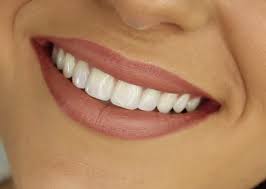
Brushing your teeth two times a day for two minutes can be hard enough. Then, when you factor in flossing, it can really start to feel like an inconvenience. But you have to keep in mind that dentists aren’t telling you to floss for their own health; instead, they’re trying to help you hang onto your teeth for as long as possible! Here are some details about flossing that should encourage you to do it more often:
How to floss:
● Cut off about 18 inches of dental floss.
● Wrap most of the floss around your middle fingers, so you can have an inch or two to work with.
● Slide the floss between each tooth and move it up and down to make sure that you cover the whole area.
● Curve the floss around the base of every tooth. You can go all the way down to your gum line, but don’t force it, or else you’ll hurt your gums.
● Use clean sections of the floss every time you work on a different tooth, otherwise you’ll be spreading plaque and food from one tooth to the next.
Here are a few reasons why you should supplement your brushing regimen with flossing:
● Keep your teeth extra clean! Although brushing removes the sticky plaque on your teeth that leads to cavities, flossing is necessary to clear away the small food particles that get stuck in between. Not only will they look and feel cleaner after flossing, but your breath will also smell a whole lot fresher, too!
● Protect Your Gums. When debris gets stuck in the tissue between your teeth, plaque can build up and eventually harden into tartar; which can only be removed by a dentist or dental assistant. If the accumulation continues, though, tartar and plaque can spread bacteria below the gum line and lead to gingivitis. This can quickly give way to periodontal disease or tooth decay. Avoid having to look for dental implants in Philadelphia by staying consistent with flossing.
● Save money. Practicing good oral hygiene will help you to avoid expensive, time-consuming dental procedures. As long as you floss regularly, go to your dentist’s office every six months for a cleaning, and take advantage of the procedures that your insurance company covers, you’ll keep your teeth in great condition!
● Keep your entire body healthy. Heart disease, stroke, diabetes, rheumatoid arthritis and even respiratory disease are all conditions associated with gum disease. This information should change your perspective on flossing and, as a result, motivate you to do it more often.
Brush and floss regularly to keep your mouth feeling fresh and your teeth shining bright!
Even if you practice good oral hygiene, there are still some issues that a professional dentist must address. Visit Center City Emergency Dentist’s website to learn about procedures relating to cosmetic dentistry in Center City Philadelphia and surrounding areas.
